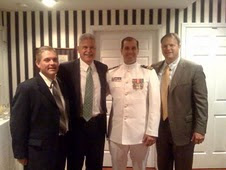The Inventive Process
Invention is a very creative process. An open and curious mind enables one to see beyond what is known. Inventors think outside of the box. "Hell, there are no rules here — we're trying to accomplish something new". - Thomas A. Edison. Seeing a new possibility, a new connection or relationship can spark an invention. Inventive thinking frequently involves combining concepts or elements from different realms that would not normally be put together. Sometimes inventors skip over the boundaries between distinctly separate territories or fields.
This Inventive process is exactly what happened in the Invention of a profitable, workable COES. It was not the very smart Ethanol people who invented the patented COES. People with multiple degrees, some with up to 24 years of experience building Ethanol Plants, walking past DDGS full of corn oil day after day - they did not invent the patented COES. As the SkunK pointed out - parts supplies who helped to build the Ethanol industry from 1980 to 2004 had some $2.4 BILLION motivations to invent the process - yet failed to. One can actually say they "COST the industry $2.4 BILION dollars" of wealth that could have been reinvested in the industry. Those very same companies JUMPED to profit once they "discovered " it sitting in GreenShift's metaphorical garage. (more on that in Part III)
The Inventive process in this case involved ". . . combining concepts or elements from different realms. . . "
Some Ethanol people look at the Inventors from GreenShift and say "they did not grow up in the Ethanol Industry" so they obviously must not have invented COES! As the SkunK just pointed out - if you know something about the inventive process - it normally takes someone outside the realm - coming in with different ideas, different experiences, to take a giant step forward.
That is NO insult to the people in the industry - the SkunK, being a small investor himself, has every respect for the farmer investors who invested in - and built this industry. Farmer investors took all the capital risks and proved Ethanol Plants profitable - and THAT led to the flow of big outside money into the Industry. That led to farmers being rewarded - and rightfully so.
GreenShift (and its small investors) took all the capital risks and proved COES profitable and patentable - but now big money is working hard to bleed this small company dry - so they can profit without cost from the work of others. It would be like ADM or Poet or Pacific Ethanol showing up at a Farmers' Owned COOP Ethanol Plant one day and just start changing the locks on the doors. That should not set well with anyone. Intellectual property is as real as any property.
Combining concepts or elements from different realms is a well known facet of the inventive process. When one looks at the COES inventors they see this was the case. Bringing knowledge and experience earned in the chemical, food, pharmaceutical, power generation, meat processing, vegetable oil processors, poultry sciences and civil engineering. The founder and GreenShift technicians also brought decades of experience in resource extraction in traditional industries.
David Winsness, Chief Technology Officer
Mr. Winsness is a graduate of Clemson University (B.S., Mechanical Engineering 1991) and has spent his professional career as a process engineer in the chemical, food, pharmaceutical and power generation markets. Prior to joining GreenShift, Mr. Winsness served as chief technology officer and eventually chief executive officer of Vortex Dehydration Technology where he directed the research, development and commercialization of a technology that is now GreenShift's Tornado Generator™.
Greg Barlage, Chief Operational Officer
Mr. Barlage's experience includes 15 years of process engineering, manufacturing optimization, maintenance and operations management with a leading food products company. For the 6 years prior to joining GreenShift, Mr. Barlage worked for Alfa Laval, a global leader in heat transfer, separation, and fluid handling solutions. There he was responsible for all capital equipment sales to the meat processing and vegetable oil processors in the U.S. This system operates 24 hours per day, 5 days per week and also uses Alfa Laval heat transfer and centrifuge components in conjunction with the Tornado Generator™ to produce high quality animal fats, chicken broth and dehydrated poultry proteins.
David Fred Cantrell - Graduate of the University of Georgia where he received a Masters Degree in Poultry Science and Statistics.
John W. Davis - John "Whit" Davis, has a B.S. in Civil Engineering from the U.S. Coast Guard Academy and an M.B.A from Boston University. Mr. Davis holds the rank of Lt. Commander as a reservist with the U.S. Coast Guard.
SkunK
Thursday, May 13, 2010
Subscribe to:
Post Comments (Atom)













No comments:
Post a Comment